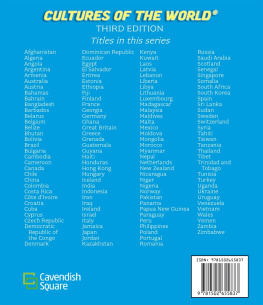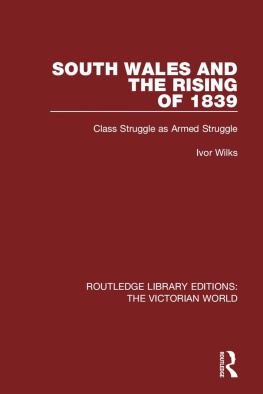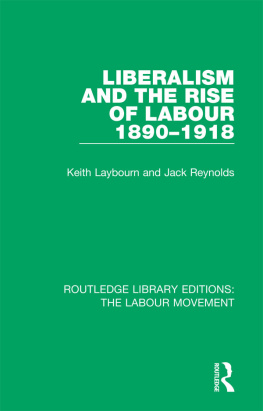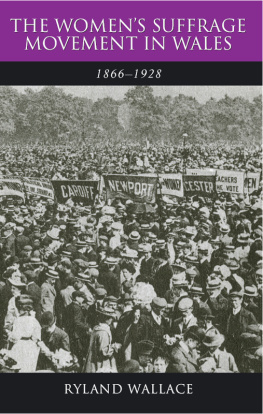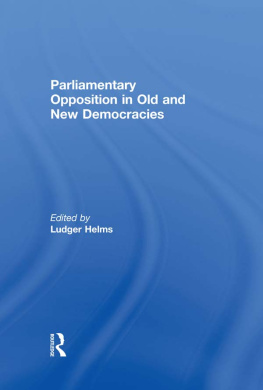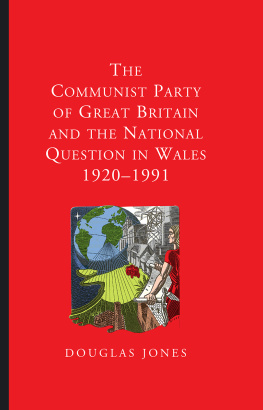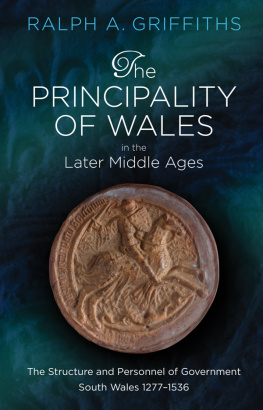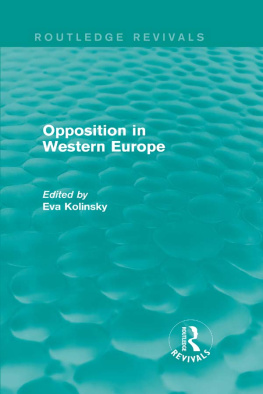STUDIES IN WELSH HISTORY
Editors
RALPH A. GRIFFITHS CHRIS WILLIAMS
ERYN M. WHITE
THE OPPOSITION TO THE GREAT WAR IN WALES, 19141918
THE OPPOSITION TO THE GREAT WAR IN WALES, 19141918
by
ALED EIRUG
Aled Eirug, 2018
All rights reserved. No part of this book may be reproduced in any material form (including photocopying or storing it in any medium by electronic means and whether or not transiently or incidentally to some other use of this publication) without the written permission of the copyright owner. Applications for the copyright owners written permission to reproduce any part of this publication should be addressed to the University of Wales Press, University Registry, King Edward VII Avenue, Cardiff CF10 3NS.
www.uwp.co.uk
British Library CIP Data
A catalogue record for this book is available from the British Library
ISBN 978-1-78683-314-3
eISBN 978-1-78683-316-7
The right of Aled Eirug to be identified as author of this work has been asserted in accordance with sections 77 and 79 of the Copyright, Designs and Patents Act 1988.
The publisher has no responsibility for the persistence or accuracy of URLs for any external or third-party internet websites referred to in this book, and does not guarantee that any content on such websites is, or will remain, accurate or appropriate.
Cover image: Arthur W. Gay, The Conchie (1931). The Peace Museum. The Artists Estate.
Since the foundation of the series in 1977, the study of Waless history has attracted growing attention among historians internationally and continues to enjoy a vigorous popularity. Not only are approaches, both traditional and new, to the study of history in general being successfully applied in a Welsh context, but Waless historical experience is increasingly appreciated by writers on British, European and world history. These advances have been especially marked in the university institutions in Wales itself.
In order to make more widely available the conclusions of original research, much of it of limited accessibility in postgraduate dissertations and theses, in 1977 the History and Law Committee of the Board of Celtic Studies inaugurated this series of monographs, Studies in Welsh History. It was anticipated that many of the volumes would originate in research conducted in the University of Wales or under the auspices of the Board of Celtic Studies, and so it proved. Although the Board of Celtic Studies no longer exists, the University of Wales Press continues to sponsor the series. It seeks to publish significant contributions made by researchers in Wales and elsewhere. Its primary aim is to serve historical scholarship and to encourage the study of Welsh history.
This book has been in gestation since 1977 and has been inspired by my father, Dewi Eirug Davies, a conscientious objector in the Second World War, and my grandfather Tom Eirug, a conscientious objector in the First World War, who unfortunately I never met. I have tremendous respect and love for both men and they have been at my side on this journey towards publication.
My academic interest in the Opposition to the Great War was inspired by the boundless enthusiasm and ceaseless intellectual curiosity of my history tutor in Aberystwyth University, Deian Hopkin. Although a life and a career in journalism intervened to postpone work on this book until 2010, for thirty years, my interest in Welsh history was sustained by Llafur, the Welsh peoples history society, the inspiring example of its founders, including Deian, the miners leader Dai Francis and his son Hywel, its organiser Sian Williams and the comradeship of its members. It has made a remarkable contribution to political and historical thought in Wales, and has brought thinkers from different traditions together to create history that is relevant to us all.
The key individual who made this book possible is Professor Chris Williams of Cork University, my supervisor, who shepherded an inexperienced, albeit mature, student through the pitfalls and blind alleys of research. Dr Martin Wright was a pillar of strength both as chair of Llafur and as my second supervisor, and Professor Bill Jones has shared his wisdom generously in the preparation of this book.
Numerous archives and libraries have been used for this book and I wish to record my thanks to the staff of the following institutions in Wales: the National Library of Wales, Bangor University Library and Archive, the South Wales Miners Library and Archive, the West Glamorgan Archive in Swansea, Cardiff University Library and Archive, Merthyr and Aberdare Public libraries, the Glamorgan Archives in Cardiff, and Cardiff Central Library. Beyond our borders, staff were unfailingly courteous and helpful at the British Library of Political and Economic Science in my alma mater in the London School of Economics, the National Archives at Kew, the House of Lords Archives, and the Friends House Library, the Bodleian Library in Oxford, the Cumbria Archives in Carlisle and the National Library of Scotland in Edinburgh.
Particular thanks are due to the Studies in Welsh History series editors, and in particular to Professor Chris Williams for his support, and Dr Llion Wigley and the staff of the University of Wales Press for guiding this book through the press. I must, however, take responsibility for any remaining errors.
Finally I owe an enormous debt of gratitude to my family. My wife, Maggie, has had to deal with my obsession with the Great War for the past eight years, and she has been a loving presence, knowing when to cajole, chivvy or sympathise. I owe her a great deal and this book is dedicated to her. I thank my stepchildren, Max and Holly, and my son, Tane, for their crucial love and support, and hope that this book will help them gain an understanding of how our generation stand on the shoulders of those who have gone before them.
| Conscientious Objectors | COs |
| Fellowship of Reconciliation | FoR |
| Friends Ambulance Unit | FAU |
| Independent Labour Party | ILP |
| International Bible Students Association | IBSA |
| London School of Economics | LSE |
| Miners Federation of Great Britain | MFGB |
| National Archives | NA |
| National Council for Civil Liberties | NCCL |
| National Library of Scotland | NLS |
| National Library of Wales | NLW |
| No-Conscription Fellowship | NCF |
| Non-Combatant Corps | NCC |
| South Wales Miners Federation | SWMF |
| Royal Army Medical Corps | RAMC |
| Union of Democratic Control | UDC |
| Unofficial Reform Committee | URC |
The commemoration of the hundredth anniversary of the Great War has concentrated on the military aspects of the conflict. Given that over 750,000 British soldiers died during the course of the war, including 35,000 Welshmen, it is inevitable that this terrible legacy has been uppermost in our minds. This war dominated British society for a generation, and its lasting effect was to mobilise civil society in support of the armed forces in total war. But attitudes towards the war were not uniform throughout the country, and those who doubted the wisdom of going to war, and dissented from the rush to arms, were obscured by the public hysteria and the initial enthusiasm that greeted the outbreak of the conflict. This study suggests that our understanding of the impact of the profoundly traumatic experience of the Great War and the effect of this social and economic watershed for Welsh society is incomplete without an appreciation of the diversity of responses to it, including the opposition to the war.


